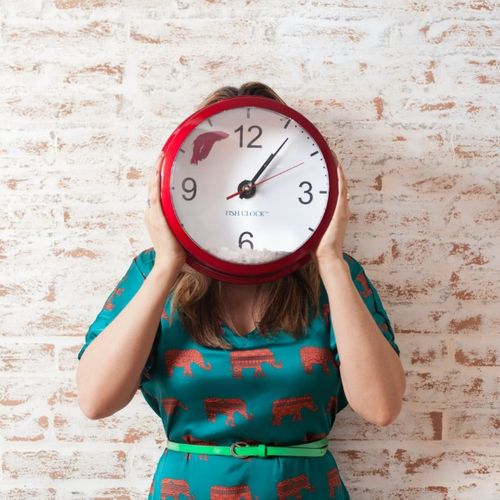Staying in Tune — The Importance of Circadian Rhythms
Oct 15, 2022 · 2 mins read
0
Share
When Doctor Satchin Panda was a student in India, he used to play with his sisters every afternoon. One day, in the middle of their hi-jinks , his sister paused, and said, “It must be 5 o’clock now.” Unsure how she would know this, Satchin asked, “How did you figure that out?"
Save
Share
She smiled and said, “Look, there’s a frog that hops into our front yard every evening at 5 o’clock.”
Satchin was amazed.
It was this seemingly small event that set the young Indian on a path toward becoming the leading expert in circadian rhythms.
Save
Share
Every plant, animal, and human has an innate, in-built timepiece. These 24-hour cycles are called circadian rhythms and, In humans, they coordinate mental and physical systems throughout the body, switching thousands of genes on and off at different times of the day.
Save
Share
These rhythms are connected to a master clock, located in a part of the brain called the suprachiasmatic nucleus (SCN) within the hypothalamus. The SCN is highly sensitive to light, which serves as external cues that help it regulate activity throughout the body.
Save
Share
To put it simply, light signals us to be awake and alert, and dark signals us to fall asleep. The issue today is that many people don't get enough natural light, and expose themselves to the blue glare of their phones or laptop screens after the sun has long since set.
Save
Share
Modern technology plays havoc with our internal clocks (millennia in the making) and can result in a variety of mental and physical health issues. This is why tuning to your natural circadian rhythm is essential. The methods below can improve your sleep, focus, and energy levels.
Save
Share
Sun exposure: Ensure you get enough natural light, especially early in the day, as this helps to reinforce the strongest circadian cue.
Keep a consistent sleep schedule: This will help you keep your circadian rhythm stable.
Save
Share
Daily exercise: Even light activity like a brisk walk can support your internal clock and help you fall asleep at night.
Avoid caffeine: Make sure your last dose of caffeine is before noon as it can throw off the natural balance between sleep and wakefulness.
Save
Share
Limit blue light after dusk: When it gets dark, dim the lights, or better yet, use candlelight. If you can, avoid using electronic devices at night.
Only nap early or in the afternoon: Late and long naps can push back your bedtime and disrupt your sleep schedule.
Save
Share
We tend to think of ourselves in a mechanical way—that if we're tired we simply need to rest to recharge our batteries. But science has shown that the time we go to bed, along with our sleep hygiene, has a profound effect on our internal rhythms, which in turn impacts our health.
Save
Share
0
